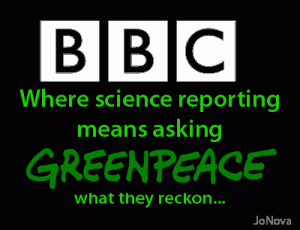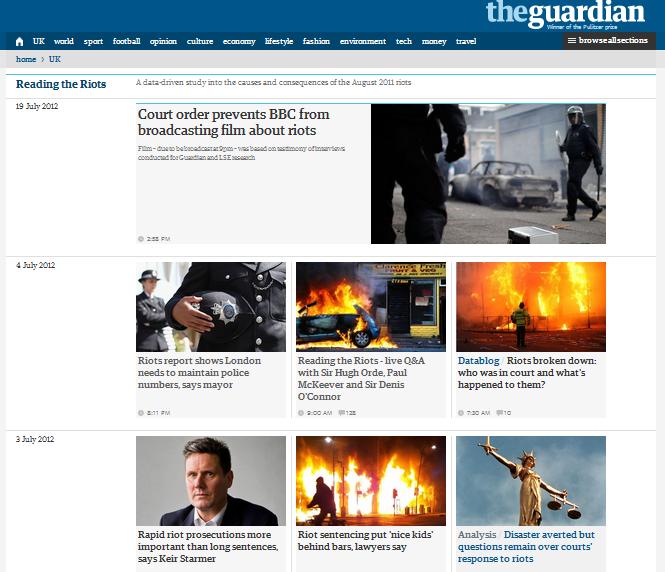“As independent as resources permit”
The BBC is going all out on the Telegraph/Oborne story and remarkably shows no interest at all in widening its investigation to explore the likelihood of similar practises at other news organisations.
A familiar pattern of behaviour from the BBC which you may remember from the time of the phone hacking saga when the sole target was Murdoch and the BBC was seen to be acting in a way that was far from being neutral taking an active part in trying to close down a commercial and political rival.
The Telegraph, a Tory supporting paper, looks set to be the BBC’s next target.
There must be many at the BBC who are laughing loudly at the damage they have inflicted upon their ideological rivals, the Tory Party and their media supporters, by the reinvention of a story that is over 5 years old.
Which, when you think about it, is an irony. Here they are targeting the Telegraph for alleged practises that compromised their journalism and yet the BBC has been involved in one of the most blatant attempts to jerrymander an election, an attempt to undermine the democratic process, by manipulating the news.
Here the BBC gives Peter Oborne a platform to further castigate the Telegraph and demand an investigation into its practises…
Daily Telegraph’s Peter Oborne urges HSBC coverage review
“The Telegraph must now call an independent review.
“It can’t be done by the chief executive, he has been running the show, we need an independent outsider to come in and do a full assessment of the relationship between advertising and editorial.
“A fraud is being perpetrated on Telegraph readers who buy the paper expecting to get the news and instead get something that gives the impression it is vetted by the advertising department.”
The BBC then goes further and reports on its Newsnight ‘investigation’ saying…
More Telegraph writers voice concern
So that’ll be just the Telegraph that may or may not be involved in such practises then…the BBC has no interest in investigating just how widespread this is?
Hardly journalism on their own part is it?….they are doing exactly what they accuse the Telegraph of doing…limiting the scope of their journalism to reporting things that are in the interest of the BBC to highlight.
The Guardian has no such qualms, and in fact has allowed Simon Jenkins to criticise itself in a much more balanced and wide ranging look at the problem of advertising and its effects on the integrity of the Media’s journalism…
Yes, Peter Oborne, ads hurt press freedom. But the alternative is worse
Newspapers are institutionalised hypocrisy. They excoriate yet they cringe. They speak truth to power and then sup at its table. They stick their moral noses in the air while their bottoms rest on festering heaps of deals, perks, bribes and ads, without which they would not exist. The most amazing thing is that this murky edifice has delivered Britain a remarkably robust and free-spirited press.
Newspapers tend to downplay the scoops of others, as many did the Guardian’s WikiLeaks and Snowden revelations of 2011 and 2013. But a big story trumps such rivalry, as the Telegraph found to its advantage with its MPs’ expenses exposé in 2009.
Jenkins makes a remarkable claim about the Guardian’s own venality and lack of integrity…
Even the Guardian cannot be regarded as immune from such pressures.
In March 2007 Labour’s short-lived Pathfinder scheme, involving dire housing demolitions in the north, was inexplicably eulogised in a Guardian supplement in return for an undisclosed payment from the government.
Today its “branded content partner zone” is occupied by Unilever, “whose sources of revenue allow us to explore, in more depth than editorial budgets would otherwise allow, topics that we hope are of interest”.
The Guardian took money from the Labour government to promote one of its policies!
How much more damaging to the Media and a ‘Free Press’ than the Telegraph’s alleged actions is it when a news outlet dances to a government tune?
The BBC always prides itself on its supposed independence from government so where is the outraged shock that the Guardian, of all papers, has taken government money in return for favourable coverage?
Jenkins continues his wide ranging look at who compromises what for expediency’s sake in a harsh market….
Most serious publications have for half a century depended on subsidy, which leaves them at the mercy of their boards and benefactors. The Independent struggles under the generosity of an oligarch. The Times depends on some rich man craving its ownership. The Telegraph survives through staff cuts and deals with advertisers. The Guardian’s security has been bought at the expense of years of closures and job losses at its media subsidiaries.
Newspapers and broadcasters still have the resources and skills to digest, process and transmit masses of information in such a way as to hold the faith of readers. That is a vital democratic construct.
There is no question that the private sector is an insecure way of financing a free press that does not make money. But all other ways are worse. There are still as many daily newspapers published in Britain (nine) as there were 50 years ago, a continuous diversity available to no other western country. Online has not wiped out print. It has enhanced the penetration and prominence of both.
Evan Davis on Newsnight suggested that the Telegraph may have ‘prostituted itself for cash’ in a phrase that is purely perjorative and designed to be as unpleasant as possible…but then you have to ask what is the BBC’s own excuse for its compromised journalism?
The Telegraph may have altered its editorial to please its advertisers but then it is a commercial enterprise and the paper only exists because of its ability to make money from that advertising. The BBC on the other hand has no such problems. It has a licence to print money.
It’s coverage of the news and the way it allows its own bias and values to colour that news is far more damaging to democracy than the Telegraph’s actions. The BBC has a vast audience that takes it on trust that the BBC is worthy of that trust and provides them with authentic, unadulterated news that helps to inform their decisions about politics and world events and therefore what the BBC tells them is more likely to be taken on trust than anything from a newspaper.
The BBC, as this blog exists to identify, abuses that trust and, as its HSBC story illustrates, seeks to change the political landscape and shape it to its own liking…preferrably with a Labour government ensconced at the next election…never mind the Middle East and climate change issues that the BBC interferes in rather than limiting itself to its job of reporting, not making, the news.
And on that subject, thanks to Guest Who in the comments, there is this…

Stephen Woolfe MEP: We must look at what a £22m bung from the EU has done at the BBC
“BBC bias in favour of the EU ‘project’ has been obvious for years. However, figures on the Financial Transparency website of the European Commission now indicate just how deeply the BBC benefits from the goodwill of the EU elite. Between 2007 and 2013 the BBC was paid more than £22m by the European Union.”
“These funds are not identified as EU money in the BBC’s annual report.”
“This is not the only fraud in BBC news coverage. Current affairs programmes often interview allegedly independent ‘experts’ on EU issues without mentioning the ‘experts’ receive funding from EU institutions.”
The BBC received from the EU, by year:
2007 €1,943,146
2008 €6,336,295
2009 €3,498,043
2010 €6,034,385
2011 €354,954
2012 €5,269,083
2013 €6,744,151Total: €30,180,057 (£22,382,997 at exchange rate Feb 18, 2015)
Not forgetting that £15,000 Roger Harrabin received from a climate change propaganda centre..
A senior BBC journalist, acting on behalf of the BBC accepted £15,000 to fund seminars from an organisation including the university at the heart of the ‘Climategate’ scandal – and later went on to cover the story without declaring an interest to viewers..
MPs say BBC must reveal details of journalists’ commercial deals
MPs have demanded that the BBC reveals details of all commercial deals its journalists have with other organisations, amid fears of an increasing number of conflicts of interest affecting their work.





